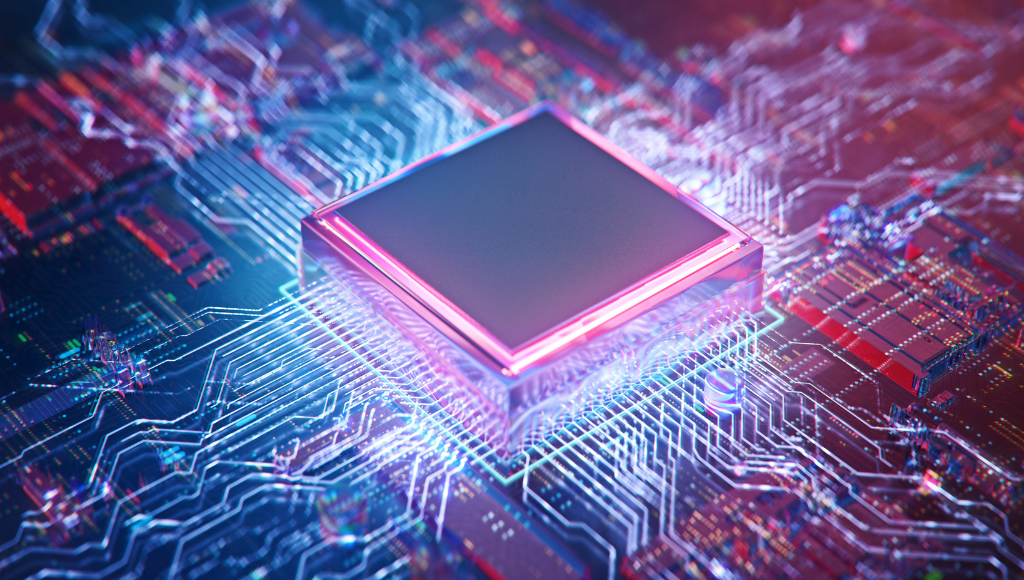In a groundbreaking achievement, scientists at Beijing’s Tsinghua University have introduced the ACCEL (All-Analog Chip Combining Electronic and Light Computing), a remarkable leap in computing efficiency surpassing NVIDIA’s widely used A100 AI chip.
The ACCEL chip merges photonic computing and electronic processing, enabling a colossal performance of 74.8 quadrillion operations per second while utilizing merely one watt of power. This innovation is poised to revolutionize various sectors like wearable tech, autonomous vehicles, and industrial inspections, where swift and energy-efficient visual processing is paramount.
Photonic computing has long promised accelerated and low-energy visual data processing, but intricate optical properties, power-intensive data conversion, and error sensitivity hindered its implementation. The ACCEL chip addresses these challenges, providing unparalleled speed and efficiency. Compared to NVIDIA’s A100, the ACCEL chip performs 4.6 quadrillion operations per second, significantly outstripping the A100’s 0.312 quadrillion operations per second in deep learning performance.
Diverging from conventional semiconductor chips, photonic chips utilize light to extract and process visual data directly, eliminating power-demanding analog-to-digital converters. This translates to an incredibly swift data processing time of only 72 nanoseconds per frame.
Practical experiments exhibited ACCEL’s exceptional accuracy in image and video recognition, overshadowing traditional GPUs in both speed and energy efficiency while maintaining high precision.
Despite its specialization, ACCEL’s all-analog nature limits its versatility compared to general-purpose computing chips. It is designed for specific problem-solving rather than a broad spectrum of functions typical in smartphones or computers.
Co-leader of the research team, Dai Qionghai, emphasized the importance of translating this breakthrough into practical applications to address significant national and public needs, marking a pinnacle achievement in the AI era.
The development holds weight in the ongoing US-China AI competition, especially with the Biden administration’s stricter restrictions on China accessing advanced US AI chip technology. This move could force companies like NVIDIA, AMD, and Intel to comply with restrictions, potentially impacting chip orders and sales to China.
The recent introduction of the ACCEL chip challenges the dominance of NVIDIA’s A100, signaling a paradigm shift in computing capabilities and potentially altering the landscape of AI chip technology.






